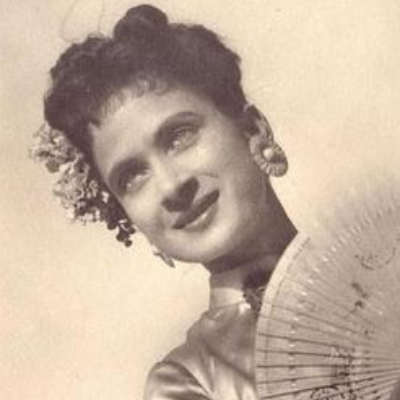Pandurang Sadashiv Sane
Subscribe to read full article
This section is for paid subscribers only. Our subscription is only $37/- for one full year.
You get unlimited access to all paid section and features on the website with this subscription.
Not ready for a full subscription?
You can access this article for $2 , and have it saved to your account for one year.
- Born: 24 December, 1899 (Palgad, Maharashtra)
- Died: 11 June, 1950
- Primary Cinema: Hindi
Pandurang Sadashiv Sane, better known as Sane Guruji, is a famous Marathi author, teacher, social activist and freedom fighter. He is especially remembered for his book Shyamchi Aai, which he penned in a prison cell at Nashik Road Jail, where he had been imprisoned after participating in the Civil Disobedience Movement in 1930. Considered one of the most moving and inspiring works of Marathi literature, Sane Guruji finished writing this classic within just five days. It relives his childhood in the Konkan, emphasising on his mother’s influence on him. Filmmaker Aacharya Atre adapted the book into a film—Shyamchi Aai (1953). It depicts the effect Shyam's mother has on his life and upbringing, how he is taught to stick to his ideals and principles even in the face of poverty, and ends with his mother’s illness and death. An instant hit, it also won the National Award for Best Film. A prolific writer—he penned around 135 books—he was also a true social reformer and champion of women’s rights.
Born on 24 December 1899 in Palgad, Maharashtra, he was the third child of Sadashivrao and Yashodabai Sane. His father being a khot, or revenue collector, the family was relatively well off when Sane was a child. However, later their financial condition deteriorated, and their house was confiscated by government authorities. Sane's mother Yashodabai passed away in 1917 due to the family’s inability to afford medical facilities. Sane would always be haunted by this fact as well as that he was unable to meet her before she breathed her last.
As a young lad, despite severe financial shortcomings, he distinguished himself at school with his command over Marathi and Sanskrit, as well as his interest in poetry. Matriculating in 1918, post-high school, he enrolled at the New Poona College and obtained his BA and MA degrees in Marathi and Sanskrit literature. Earning a Master’s degree in Philosophy, he opted for the teaching profession. He chose to teach in rural schools, thus foregoing a potentially larger salary to be earned teaching wealthier students. A gifted orator, he captivated listeners with his inspiring speeches on civil rights and justice. Publishing a magazine while in school named Vidyarthi, he inculcated moral values in the student community, which adored him. Six years of teaching later, he resigned to join the Indian Independence Movement when Mahatma Gandhi started the Dandi March in 1930.
This new chapter of his life saw Sane imprisoned by British authorities in Dhule Jail for more than 15 months for his involvement in the Civil Disobedience Movement. In 1932, when Vinoba Bhave was in the same jail as Sane, the former had delivered a series of lectures on the Bhagavad Gita. The notes Sane had made culminated in Bhave's work Gita Pravachane.
Participating in various agitations between 1930 and 1947, he was arrested on eight occasions and imprisoned in jails at Dhule, Trichinapally, Nasik, Yeravada, and Jalgaon for a total of six years and seven months. While he was incarcerated in Trichnapalli jail, he learned Tamil and Bengali, and went on to translate into Marathi, Thiruvalluvar’s Tamil moral work, the Kural. Aware of the importance of learning Indian languages, particularly for its importance in national integration, he started the Antar Bharati movement.
Sane played a crucial role in the spread of the Indian National Congress presence in rural Maharashtra, the working-class movement in East Khandesh district, and in campaigning for the removal of untouchability.
In the course of his life, Sane Guruji penned around 135 books of which 73 have been published. Almost all his books are meant for children. His most well-known work in Marathi literature was Shyamchi Aai, which has been translated into nearly all the Indian languages as well as Japanese and English. Other popular works of his include Bharatiya Samskriti, Patri – a collection of various songs and poems, and Teen Muley which is a heart-warming story of three children and is considered a classic.
His book Shyamchi Aai was adapted to film by director P K Atre. A fictionalised account of the childhood years of Sane Guruji, it narrated in a long flashback the events in his life, focussing on the teachings of his mother, a devoutly religious person with an earthy and practical philosophy. Starring Damuanna Joshi, Vanamala and Madhav Vaze, Shyamchi Aai was the first-ever film to win the Golden Lotus Award for Best Film at the National Film Awards in 1954. It remains a cult film in the history of Marathi cinema and is still fondly remembered and recalled by film scholars and students.
Becoming increasingly disillusioned over the possibility of eradicating inequality from Indian society in post-Independence India, and adversely affected by the assassination of Mahatma Gandhi, Sane undertook a fast for 21 days. Overdosing on sleeping pills, Sane Guruji passed away on 11 June, 1950.








.jpg)



